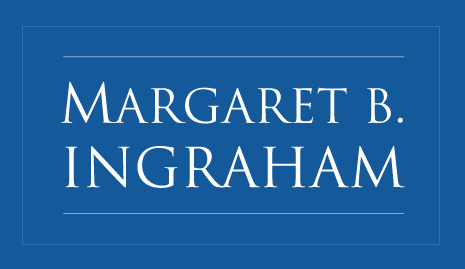If you were asked to define your faith, where would you begin? More particularly, if you were required to explain the basis of your belief in God, as well as your understanding of the character of who or what God is, what words would you use? Suppose describing your relationship with God was added to the task. And then you were required to identify a limited number of words– say a dozen – as absolutely critical to your response. What would you say? Where would you find your answers? I would commence by looking to the man after God’s heart, for he has provided us the guidebook.
In the past two posts I began to focus our attention on the few keys words that I characterized as the essential lexicon of David’s faith. I have studied those words for years, yet I had never looked at them as the lexicon of his faith before. But that is precisely what they are. Without them, I doubt David could have articulated the basis of what he believed. With them, he paints an extraordinary, and extraordinarily intricate, picture of the Creator of the universe and of his own personal bond with Him.
Here are nine of the twelve key words of David’s lexicon: way(s), statute(s), commandment(s), rule(s), testimony(ies), law, word, precept(s) and judgment(s)/justice. The single Hebrew word mishpat carries the two meanings of judgment and justice simultaneously.
Seven of the words –(way(s), statute(s), commandment(s), rule(s), testimony(ies), law, word)– as we have seen, make up the heart of David’s final words to his son and king-to-be Solomon in 1 Kings 2. All nine are the vertebrae in the backbone that gives strength and structure to the longest chapter of the Bible and magnum opus of the psalter, namely Psalm 119. At least one of each of those nine words appears in 174 of the psalm’s 176 verses.
We’ve noted previously that Psalm 119 is not designated in the text as Davidic, but Psalm 19 is. There are striking similarities between the long psalm and its shorter predecessor. In my mind, Psalm 19 is the outline for the 119th. If it is the outline, then it should sketch out the structure, and define the content, of the larger work. Why then do none of the nine words appear in the first half of that poem? What are those lines about anyway and what is the relationship of the first six verses of Psalm 19 to the final eight?
A transition or shift from one theme or mood to another is common in the psalms. Complaint or lament frequently gives way to thanksgiving, for example. This turn of heart is much like the turn of thought characteristic of the sonnet, which effectively divides it into two parts as a way of pressing it toward resolution.
Turns, of course, come in widely varying degrees. The shift between verses 6 and 7 of Psalm 19 is so apparently blatant and abrupt that it has caused numerous scholars to suggest the poem was originally two separate psalms mistakenly transcribed as one by careless editors centuries after its composition. I could not disagree more heartily.
In fact, I do not see any disjunction at all. Rather I perceive the swing as a hinge in a psalm dedicated to magnifying law and covenant and to illuminating the inseparability of the two, one from another, and both from the lawgiver.
 “The heavens are telling the glory of God, and the sky above proclaims his handiwork,” (Ps.19:1) the psalmist begins, launching into a description of the architecture of the created universe. This is a chronicle of natural law, regular and reliable and established as covenant between the maker and all He has created. David elaborates on the order of this natural law by declaring “day to day pours forth speech.” (Ps. 19: 2). Day and night and sun are all types of wordless speech and their voices, paradoxically, while being mute or muffled, are heard. But that which is heard in their silent speech is immediately perceived as the distinct voice of the Creator. Surely that was true for the shepherd boy David and for his Hebrew contemporaries. When the poet David speaks of this, he selects a vocabulary that conjures the creation story of Genesis 1 where the Lord speaks all things into being as his spirit hovers above the waters. What the Lord has made by His word, He has kept, is keeping and will keep by His word.
“The heavens are telling the glory of God, and the sky above proclaims his handiwork,” (Ps.19:1) the psalmist begins, launching into a description of the architecture of the created universe. This is a chronicle of natural law, regular and reliable and established as covenant between the maker and all He has created. David elaborates on the order of this natural law by declaring “day to day pours forth speech.” (Ps. 19: 2). Day and night and sun are all types of wordless speech and their voices, paradoxically, while being mute or muffled, are heard. But that which is heard in their silent speech is immediately perceived as the distinct voice of the Creator. Surely that was true for the shepherd boy David and for his Hebrew contemporaries. When the poet David speaks of this, he selects a vocabulary that conjures the creation story of Genesis 1 where the Lord speaks all things into being as his spirit hovers above the waters. What the Lord has made by His word, He has kept, is keeping and will keep by His word.
Thinking back over this Hebrew recognition of God as Master over nature has enriched the meaning of a familiar New Testament story for me. The three synoptic gospels (Matthew, Mark and Luke) all recount the story of Jesus sleeping in the back of the boat as a violent storm blows over the sea and the disciples begin to panic. Jesus calms the storm by speaking to it, and Mark and Luke record the reactions of the witnesses who experienced it in the moment verbatim: “Who then is this that he commands even the winds and the waters, and they obey him?”(Mk. 4:41; Lk. 8:25) For those first century speakers, of course, the answer is immediately and undeniably evident in the question. Only the One who created natural law can command it.
 But back to Psalm 19. The opening half line (which is called a verset) of the first verse after the “disjunction” affirms, in discursive language, the meaning of the poetic imagery of the first six verses. “The law of the Lord is perfect” the psalmist proclaims. He is matter of fact. He is stating the truth about God’s law, about all God’s law, whether that be the natural law the poet has just marvelously depicted or the moral law, handed down from God to man, to which David devotes the remainder of the psalm.
But back to Psalm 19. The opening half line (which is called a verset) of the first verse after the “disjunction” affirms, in discursive language, the meaning of the poetic imagery of the first six verses. “The law of the Lord is perfect” the psalmist proclaims. He is matter of fact. He is stating the truth about God’s law, about all God’s law, whether that be the natural law the poet has just marvelously depicted or the moral law, handed down from God to man, to which David devotes the remainder of the psalm.
Here is the conjunction of the parts of the psalm. The law of the Lord is perfect. Here is the covenantal order—absolute, faultless, finished – which is as old as creation and new every morning. Here are the terms that by grace and obedience we must keep. Here is the promise He kept, is keeping, will keep and by and in which we are held and assured.
Click here for the link to Psalm 19 in the ESV.
